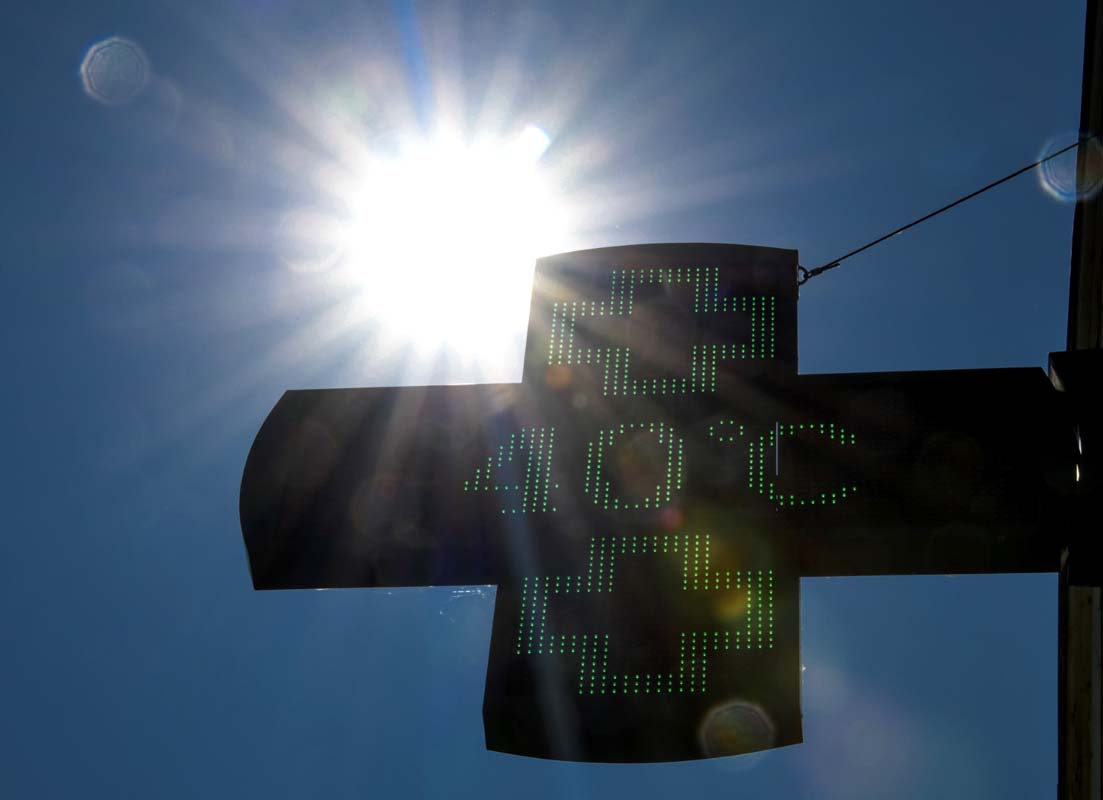
403
Sorry!!
Error! We're sorry, but the page you were looking for doesn't exist.
EU report shows July marks 2nd-hottest month ever recorded globally
(MENAFN) In its latest report, the EU's Copernicus Climate Change Service revealed that July 2024 was the second-warmest month ever recorded globally, trailing slightly behind July 2023. The average surface air temperature for July 2024 was 16.91 degrees Celsius, which is 0.04 degrees Celsius cooler than the same month last year. This marks the end of a 13-month period during which every month had set a new record for the highest temperatures for that time of year.
Despite July 2024 narrowly missing the top spot, the Earth experienced its two warmest days on record, with temperatures reaching 17.16 degrees Celsius and 17.15 degrees Celsius on July 22 and 23, respectively. Samantha Burgess, the deputy director of Copernicus, emphasized that while the record-breaking streak has ended by a small margin, the overall trend remains clear: the climate continues to warm. She highlighted that the severe impacts of climate change will persist until global greenhouse gas emissions are reduced to net zero.
The report also indicates that while 2023 is confirmed as the warmest year on record, 2024 is on track to potentially surpass it. From January to July 2024, the global temperature anomaly was 0.27 degrees Celsius higher compared to the same period in 2023. For 2024 not to surpass 2023 as the warmest year, the average temperature anomaly for the remaining months would need to decrease by at least 0.23 degrees Celsius—a scenario that is highly unusual based on historical data. This suggests a strong likelihood that 2024 could become the hottest year on record.
Despite July 2024 narrowly missing the top spot, the Earth experienced its two warmest days on record, with temperatures reaching 17.16 degrees Celsius and 17.15 degrees Celsius on July 22 and 23, respectively. Samantha Burgess, the deputy director of Copernicus, emphasized that while the record-breaking streak has ended by a small margin, the overall trend remains clear: the climate continues to warm. She highlighted that the severe impacts of climate change will persist until global greenhouse gas emissions are reduced to net zero.
The report also indicates that while 2023 is confirmed as the warmest year on record, 2024 is on track to potentially surpass it. From January to July 2024, the global temperature anomaly was 0.27 degrees Celsius higher compared to the same period in 2023. For 2024 not to surpass 2023 as the warmest year, the average temperature anomaly for the remaining months would need to decrease by at least 0.23 degrees Celsius—a scenario that is highly unusual based on historical data. This suggests a strong likelihood that 2024 could become the hottest year on record.

Legal Disclaimer:
MENAFN provides the
information “as is” without warranty of any kind. We do not accept
any responsibility or liability for the accuracy, content, images,
videos, licenses, completeness, legality, or reliability of the information
contained in this article. If you have any complaints or copyright
issues related to this article, kindly contact the provider above.


















Comments
No comment